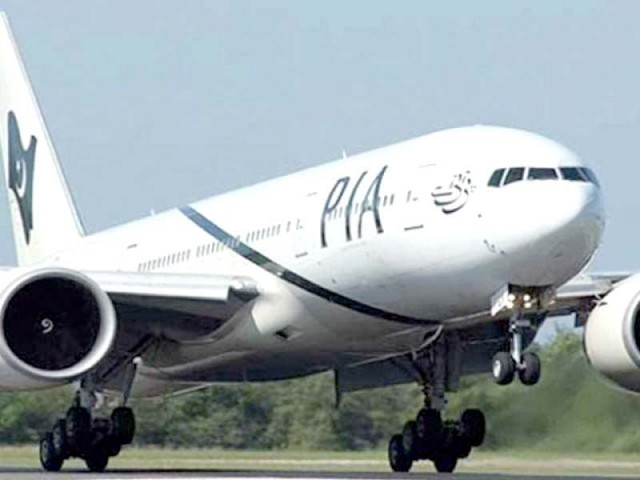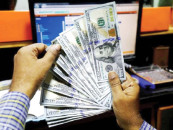PIA Holding Company approves Rs268b debt restructuring
Govt aims to privatise airline by June 11th, with bids invited as early as next week

The Pakistan International Airline Holding Company board on Wednesday approved the restructuring of the airline’s Rs268 billion commercial debt, incorporating it into the public debt. The term sheet was finalised by the Ministry of Finance with commercial banks. The government’s decision to merge the airline’s debt into public debt means that taxpayers will bear the cost of PIA’s inefficiency and mismanagement.
In its hastily convened inaugural meeting, the newly constituted PIA holding company board swiftly approved the term sheet for restructuring the Rs268 billion debt. Former Special Assistant to the Prime Minister, Tariq Bajwa, chaired the board meeting. The meeting was convened urgently, and directors attended virtually without adequate time to review the terms in detail.
According to the approved term sheet, banks have agreed to extend their debt for ten years and reduce interest rates from the existing approximately 23.5% to a maximum of 12%. If the government fails to privatise PIA within three years, banks will have the right to reopen the deal and demand an interest rate equal to prevailing rates in 2027.
Following board approval, the government will file the scheme of arrangement with the Securities and Exchange Commission of Pakistan (SECP). The government aims to privatise PIA by June 11th, with bids possibly invited as early as next week.
Essentially, PIA Company will split into two, with the airline’s bad debts, including commercial loans, trade debts, and government borrowings, transferred to the holding company. Over Rs650 billion of the Rs825 billion PIA debt will be transferred to the holding company, leaving a clean PIA to be sold to investors.
The decision to include the airline’s debt in the public debt and allocate annual interest payments from the budget shifts the responsibility for PIA’s inefficiency to taxpayers. The government will make annual interest payments of Rs32 billion to banks, with the debt in the holding company either settled from privatisation proceeds or paid from the budget.
Read PIA sell-off, IMF loan send PSX to new high
The holding company’s mandate is limited to discharging PIA’s liabilities and does not include raising fresh loans. Commercial banks have priority rights over the holding company’s assets.
Under the decision, the Rs268 billion debt, including Rs18 billion interest, has been rescheduled, now the responsibility of the federal government. The deal’s cut-off date is the end of December 2023.
This arrangement means banks will receive over Rs300 billion in interest payments over a decade, exceeding their outstanding stocks of Rs268 billion. Sources indicate the total pay-out to banks at a 12% interest rate will be Rs573 billion over ten years.
However, the government has provided special treatment for the foreign currency loan of $88 million obtained from the National Bank of Pakistan (NBP) and Habib Bank Limited (HBL). This decision imposes an additional burden on the exchequer due to high interest rates in dollar terms and exchange rate risks over the next five years.
Unlike the restructuring of domestic lending from commercial banks amounting to Rs243 billion, the finance ministry did not convert the $88 million or Rs25 billion foreign loan component into domestic currency.
A consortium of NBP and HBL provided a $88 million loan to PIA at the Secured Overnight Financing Rate (SOFR) plus 5.4%, approximately 11% in dollar terms.
It has been decided that a portion of the $88 million will be settled, with $53 million transferred to the holding company without restructuring. NBP and HBL will provide equivalent rupee funding to the New Hold Company. The $53 million will be transferred to the books of the New Hold Company and repaid over five years at the existing interest rate of SOFR+ 5.4% per annum, equivalent to 11% in dollar terms.
Banks will have sovereign guarantees and exclusive rights to all present and future current and fixed assets of New Hold Company, excluding any interest or charge on Roosevelt Hotel.
However, if the government fails to privatise PIA within three years, commercial banks will have the right to reopen the deal and demand an interest rate equal to prevailing government borrowing rates.
Lenders will also have the right to reject future borrowing by the holding company.
Excluding the foreign currency component, HBL’s nearly Rs31 billion debt, NBP’s Rs48 billion, Bank of Punjab’s Rs59 billion, Askari Bank’s Rs34.5 billion, Faysal Bank’s Rs22.5 billion, JS Bank’s Rs22 billion, and Al Baraka Bank’s Rs7 billion debt have been rescheduled.
Published in The Express Tribune, March 28th, 2024.
Like Business on Facebook, follow @TribuneBiz on Twitter to stay informed and join in the conversation.



















COMMENTS
Comments are moderated and generally will be posted if they are on-topic and not abusive.
For more information, please see our Comments FAQ